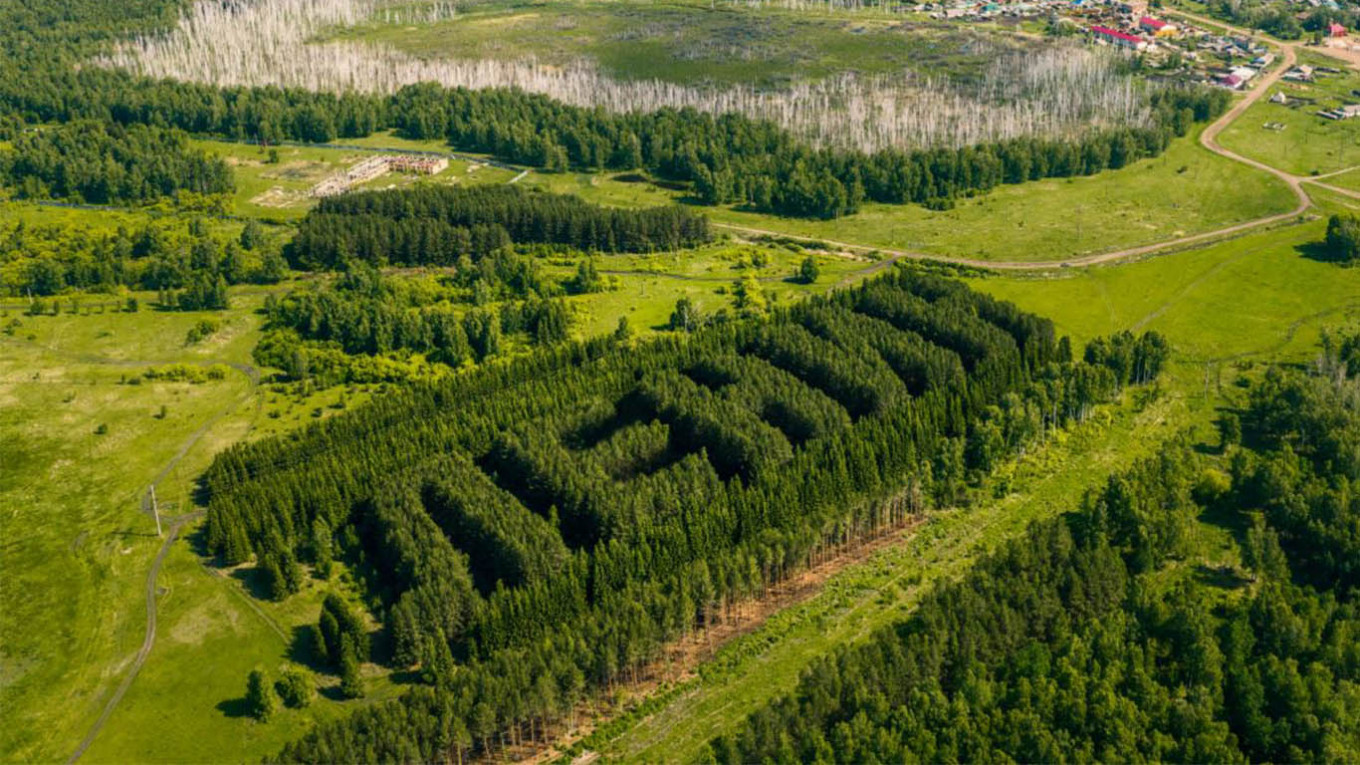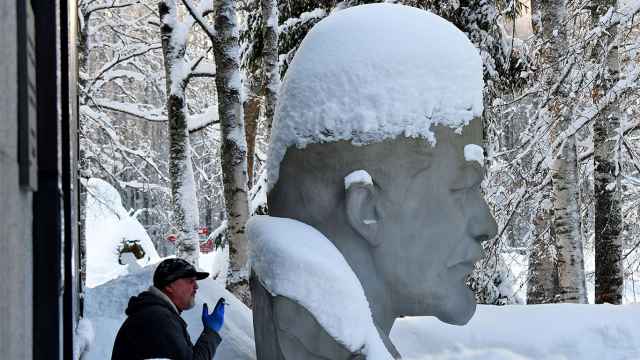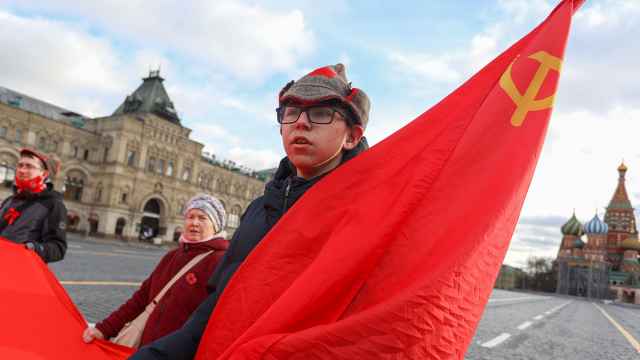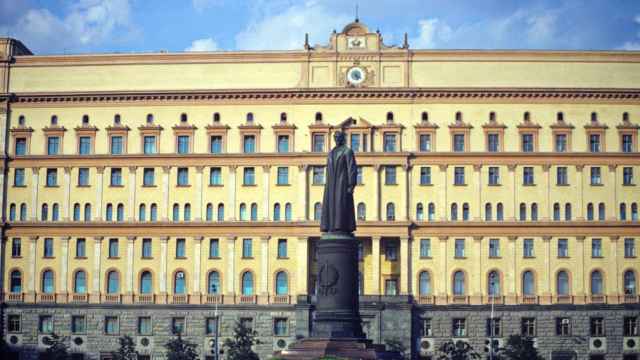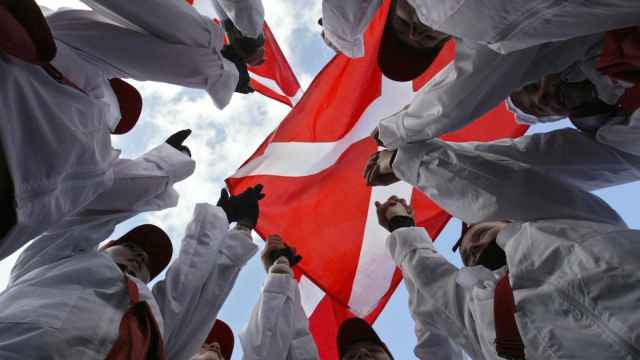When world leaders think about how they want to immortalize their legacy, they often choose to capture their likeness in grand sculptures of stone or bronze.
Vladimir Lenin, the Russian revolutionary leader who became a godlike figure for the Soviet Union after his death in 1924, has been memorialized in a much more unorthodox way: His name is now emblazoned across the earth in a gigantic pine tree formation in southern Siberia.
Russian drone photographer Slava Stepanov captured the forest formation near the Omsk region town of Tyukalinsk, which is close to the border with Kazakhstan, the U.S.-funded Radio Free Europe/Radio Liberty news outlet reported.
He decided to visit the town in early June after remembering a satellite image from Google Maps that he had seen years ago.
“From the ground it was like a walk through an ordinary forest, but one planted by man. All of the trees are planted in a straight line,” RFE/RL quoted Stepanov as saying.
The clear, crisp drone images of the 82-meter-high, 300-meter long geoglyph from above were “awesome” to behold, Stepanov said.
The photographer said the trees were likely planted in the 1970s to mark an important Soviet anniversary, as citizens faced pressure to prove their dedication to the country’s communist system.
"In the U.S.S.R., people were very focused on anniversaries, especially the birthday of Lenin and the anniversary of the 1917 October Revolution," Stepanov told RFE/RL.
Tyukalinsk residents interviewed by RFE/RL had all heard of the Lenin forest, but couldn't say exactly when or why it was created.
The year 1970 marked the 100th anniversary of Lenin’s birth — so it's not unlikely that the trees could have been planted that year.
"Every factory, every enterprise, or even whole villages tried to somehow congratulate higher, stronger, more powerfully; to be more interesting and more noticeable than the rest. Among other things, there was an idea that communism would be eternal,” RFE/RL quoted Stepanov as saying.
While this Lenin-shaped forest won't last forever, it will likely exist longer than the Soviet Union did.
A Message from The Moscow Times:
Dear readers,
We are facing unprecedented challenges. Russia's Prosecutor General's Office has designated The Moscow Times as an "undesirable" organization, criminalizing our work and putting our staff at risk of prosecution. This follows our earlier unjust labeling as a "foreign agent."
These actions are direct attempts to silence independent journalism in Russia. The authorities claim our work "discredits the decisions of the Russian leadership." We see things differently: we strive to provide accurate, unbiased reporting on Russia.
We, the journalists of The Moscow Times, refuse to be silenced. But to continue our work, we need your help.
Your support, no matter how small, makes a world of difference. If you can, please support us monthly starting from just $2. It's quick to set up, and every contribution makes a significant impact.
By supporting The Moscow Times, you're defending open, independent journalism in the face of repression. Thank you for standing with us.
Remind me later.


